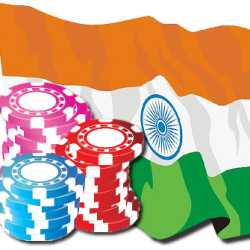Second Indian State Passes iGaming Regulation

Online gambling in India is almost completely unregulated, but lawmakers from the various states are beginning to appreciate a need to establish a set of rules to license operators, and monitor and control their activities across the vast country. In 2008, the Indian state of Sikkim subsequently became the first state to pass a law regulating iGaming, but while many thought that other states would quickly follow, change elsewhere has been slow. Finally, though, a second state has now gone ahead and passed iGaming legislation.
Nagaland Passes iGaming Legislation
Nagaland, a state located in northeast India, is home to around 3 million people. In early 2016, the Nagaland Legislative Assembly passed a piece of legislation known as the “Nagaland Prohibition of Gambling and the Promotion and the Regulation of Online Games of Skills Bill of 2015”, and the law is currently waiting to be signed into law by the state’s Governor.
Key Features of the Law
Here are some key features of Nagaland’s online games of skill bill:
– Games That Require Skill Are Permitted. The legislation draws a distinction between traditional casino games that the outcomes are left entirely up to chance, and games that require skill that give players some control over whether they win or lose. Under the law, games that require skills are now permitted to be played for money. Some of the games identified in the bill include bridge, chess, poker, rummy, virtual fantasy sports and virtual team selection games. The law leaves room for other types of games to be added in the future.
– The Law Is Very Open Geographically. Under the Nagaland law, operators of online gaming sites in the state can be based anywhere in India, and the games that they provide can be played by anyone living in India unless they are in a state that has explicitly banned that particular type of game. Currently, the states of Assam and Orissa have bans on gambling on games that require skill, so residents of those states will be unable to play.
– Profits Are Allowed. The Nagaland legislation allows operators of gambling sites to make a profit off of the losses of players. This may seem like odd language to have placed in a bill as it would seem only natural that sites would be allowed to profit from their operations; however, previous Supreme Court decisions in the state created a grey area about whether or not sites could be run for profit. Thus, the legislation establishes that it is in fact legal for them to make a profit. The law also permits operators to advertise.
Challenges Ahead
Assuming that the Governor signs the new law, Nagaland will likely begin licensing operators in the near future, although what’s not clear is exactly how the other states in India will respond. There are some concerns that conflicts could arise among states that have not yet enacted iGaming laws, so some Indian legislators are calling for nationwide regulations to be put in place to prevent such a response and provide clarity regarding what the states are and aren’t allowed to offer in terms of online gaming. That said, with the issue now out into the open, India is likely to benefit from having a clearer and more focused approach to online gambling in the future. As Indian law firm, Nishith Desai Associates, subsequently commented:
“The Bill is definitely a positive step towards not only clearing the ambiguity on what constitutes “games of skill” but also towards a promising license regime for potential operators to set up shop.. I see the legalities getting a lot stronger and clearer.”
WPT Partners with India’s biggest iPoker Site
India has a population of 1.25 billion people, of which around 500,000 regularly play real money poker online. The country’s biggest poker site, Adda52.com, boasts around 800,000 registered users, and with the game’s popularity continuing to rise, the site has now signed a partnership deal with the World Poker Tour (WPT).
Under the terms of the deal, Adda52.com will be permitted to exclusively license WPT products and services across India, as well as use the brand to create merchandise products, and attract local sponsorship partners. The site will also host events enabling Indian players to qualify for WPT tournaments held worldwide, and commenting on the landmark deal the CEO of Adda52.com, Anuj Gupta, explained:
“There is a poker boom and the Indian poker community is looking for a better tournament experience. With this tie-up, we want the poker community to be exposed to international standards of poker with better structures, well-defined tournaments, and the knowledge the WPT brings to the table.”









